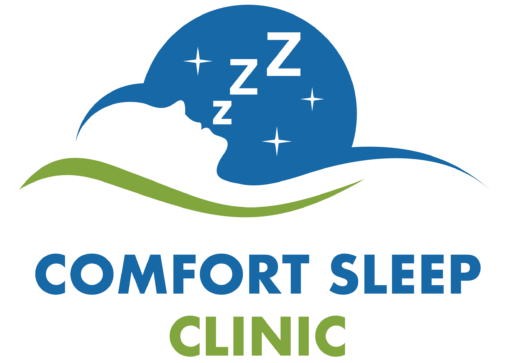Researchers at the University of California, Berkeley recently published a study that identified a connection between anxiety and lack of deep sleep. Participants in the study were shown emotionally stirring video clips after a full night of sleep and then again after no sleep. Anxiety levels were measured after each session. When a full night of sleep was achieved, anxiety levels were significantly lower, especially in participants who reached a slow-wave non-rapid eye movement (NREM) sleep. Brain scans conducted after a sleepless night also indicated a shutdown of the medial prefrontal cortex, the part of the brain that helps regulate anxiety.
If you have anxiety, not getting a quality, full night of sleep could be the culprit. Comfort Sleep Clinic can help by conducting sleep disorder testing to evaluate your quality of sleep and identify any underlying problems such as sleep apnea. Sleep disorder testing is conducted at our sleep clinic by a sleep disorder specialist.
We have a sleep clinic in Los Angeles and another in Monterey Park to serve you. Each is equipped with the latest sleeping disorders test equipment and comfortable bedroom to help make the environment feel more like home. A sleep disorder specialist will connect monitors that register your brain waves, heart rate, breathing and blood oxygen levels while you sleep. The data gathered during your sleeping disorders test is recorded and reviewed by our board certified sleep physician.
If you suffer from anxiety, sleep disorder testing can help determine if problems sleeping could be a contributing factor. Give us a call to schedule an appointment for an initial consultation. Comfort Sleep Clinic is open Monday – Friday from 9:00 a.m. to 5:00 p.m. and sleep disorder testing is conducted from 7:00 p.m. to 8:00 a.m. seven days a week. Don’t let an undiagnosed sleep disorder interfere with your quality of life. Give Comfort Sleep Clinic a call today!
Researchers at the University of California, Berkeley recently published a study that identified a connection between anxiety and lack of deep sleep. Participants in the study were shown emotionally stirring video clips after a full night of sleep and then again after no sleep. Anxiety levels were measured after each session. When a full night of sleep was achieved, anxiety levels were significantly lower, especially in participants who reached a slow-wave non-rapid eye movement (NREM) sleep. Brain scans conducted after a sleepless night also indicated a shutdown of the medial prefrontal cortex, the part of the brain that helps regulate anxiety.
If you have anxiety, not getting a quality, full night of sleep could be the culprit. Comfort Sleep Clinic can help by conducting sleep disorder testing to evaluate your quality of sleep and identify any underlying problems such as sleep apnea. Sleep disorder testing is conducted at our sleep clinic by a sleep disorder specialist.
We have a sleep clinic in Los Angeles and another in Monterey Park to serve you. Each is equipped with the latest sleeping disorders test equipment and comfortable bedroom to help make the environment feel more like home. A sleep disorder specialist will connect monitors that register your brain waves, heart rate, breathing and blood oxygen levels while you sleep. The data gathered during your sleeping disorders test is recorded and reviewed by our board certified sleep physician.
If you suffer from anxiety, sleep disorder testing can help determine if problems sleeping could be a contributing factor. Give us a call to schedule an appointment for an initial consultation. Comfort Sleep Clinic is open Monday – Friday from 9:00 a.m. to 5:00 p.m. and sleep disorder testing is conducted from 7:00 p.m. to 8:00 a.m. seven days a week. Don’t let an undiagnosed sleep disorder interfere with your quality of life. Give Comfort Sleep Clinic a call today!
Source: University of California – Berkeley. “Stressed to the max? Deep sleep can rewire the anxious brain: A sleepless night can trigger up to a 30 percent rise in emotional stress levels, new study shows.” ScienceDaily. ScienceDaily, 4 November 2019. <www.sciencedaily.com/releases/2019/11/191104124140.htm>.

